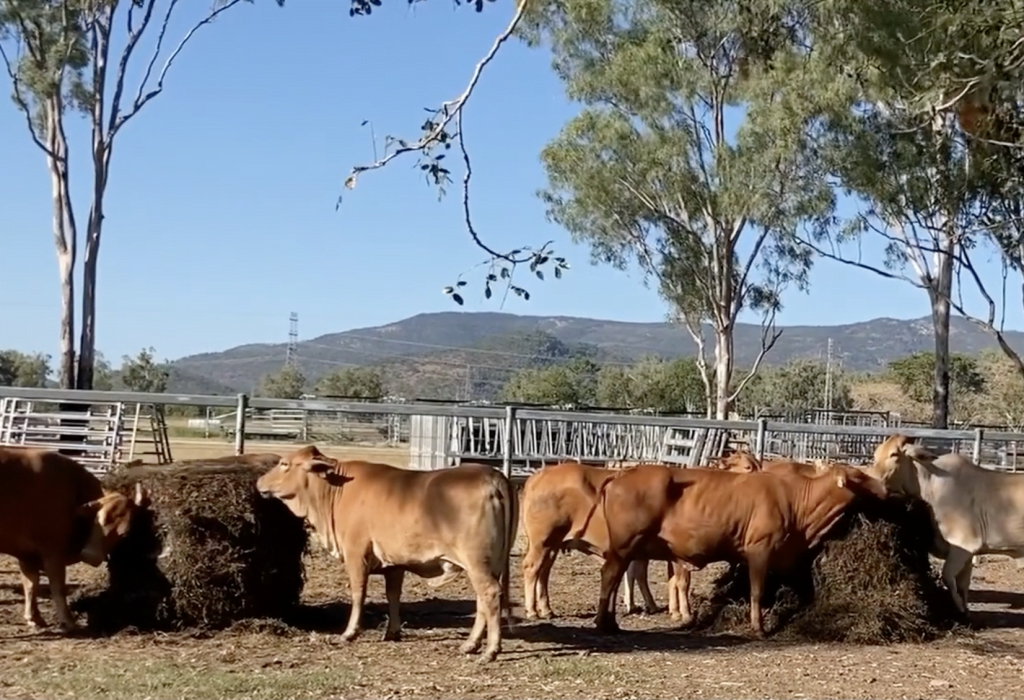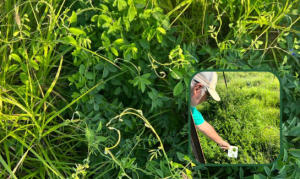Results are in – cattle enjoy Progardes® silage, the “Lucerne for the north”
In what may well be a world-first, JCU plant breeder Chris Gardiner and Dr Ed Charmley (and his team at CSIRO’s Lansdown Research Station) have conducted a new trial on the use of Progardes® for silage.
We sat down with Chris and Ed to find out more about the trial and what they hope to achieve…
Hi Chris, what problem were you aiming to solve when you developed this trial?
Northern Australia has annual dry season droughts and regular, more prolonged droughts. Having a high biomass, high protein legume feed conserved and available for these times would be valuable for livestock maintenance and production.
The scheme aims to utilise available wet season water to grow quality conserved feed for utilisation later in dry/drought periods.
What exactly does the trial entail?
On a small scale, this initial pilot study is aimed at evaluating the feasibility of making silage from tropical legumes and in particular, from three cultivars of Progardes® Desmanthus which are well adapted to clay soils across northern Australia. We believe this is the first time Desmanthus has been made into wrapped bales of silage.
Ed, What have you learned so far?
CSIRO and JCU have analysed forage samples to evaluate them for quality and their preservation attributes.
The Progardes silages had good nutritive value and would support a liveweight gain of between 0.5-1.0kg/day in growing steers, depending on voluntary intake. The ME range was 9-10 MJ/kg of dry matter and CP range was 20-27%.
“This is a very limited study, but it does show that Progardes cultivars can be successfully ensiled and produce palatable silage. Getting the dry matter right is critical and a value of around 45 to 50% dry matter would seem about right. Just like lucerne, ensiling a stalky forage in round bales runs the risk of puncturing the plastic wrap and getting mould damage from exposure to air. This is a crop better suited to precision chopping and storage in bunkers” added Ed.
And what’s next for the trial?
As the project progresses, the silage work will be expanded and evaluated across several regions. If successful, adoption of these products as a high biomass, high protein dry season/drought feed resource will be promoted.
We’re very excited by the early findings of this trial and will keep you updated on any new developments.
ABOVE: The first production of Progardes® Desmanthus silage bales




